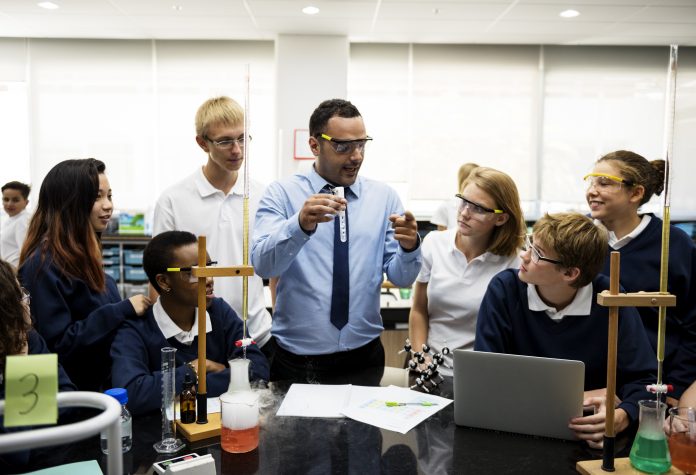Simon Biggs, Education Outreach Officer at Renishaw, explains how businesses can engage with students to increase engagement in science, technology, engineering and maths (STEM) subjects
What do you want to be when you grow up? It is a question we all heard as children and the answer changes a lot as we get older. So, when should we start to engage young people to help them decide on their answer?
46% of engineering employers surveyed by EngineeringUK experience recruitment difficulties due to a lack of skilled candidates. The UK Government is trying to counteract this by increasing the focus on STEM subjects during primary and secondary school education. While more students are taking STEM subjects at A-level and degree level, there is still some work to do.
EngineeringUK also found that only 37% of eleven to 16-year olds know almost nothing about engineering or what engineers do. The best way to change this is to understand more about when student’s STEM education should begin.
Excitement or engagement?
To achieve the best results, teachers of STEM subjects should adapt their approach based on the year group. For example, younger students aged around nine to eleven are not typically planning their GCSE subjects or higher education choices. At this age, STEM activities should be about excitement and changing perceptions rather than career focussed. Hands-on activities are a great approach for younger children and if they can make something to take home and show their parents, such as a keyring, the impact of the session can last even longer.
When children get older, around the ages of twelve to 15, they are starting to think more about higher education and this is the time to engage with students about STEM careers. At this age, students are interacting with more technology including mobile phones, tablets and laptops. Using more technology means that students begin to ask more questions about how things work and are more open to learn more about STEM subjects and where they could take them.
Parental intervention
Changing a parent’s perception of STEM at an early stage is as important as engaging with the students. Parents can greatly influence a student’s choice of subjects up to degree level and their child’s career choice. If we work hard to create fun and engaging workshops that open a student’s eyes to the possibilities in a STEM career but a parent has a different opinion then that work may be wasted.
Teachers should regularly involve parents in activities to help change perceptions about STEM and show that engineering can be an exciting subject for their children to study at a higher level. Schools can also work with businesses to help change perceptions about STEM for both parents and students. Businesses can open their doors to show what an engineer really does, provide positive role models and see how school activities can lead to a rewarding career in the engineering field.
What answer did you give when asked as a child, what do you want to be when you grow up? I doubt you said engineer. However, if schools, businesses and parents work together to improve early STEM engagement, children can grow up to fulfil their dreams of being an astronaut, a scientist or an engineer.
For more information visit www.renishaw.com/educationoutreach











